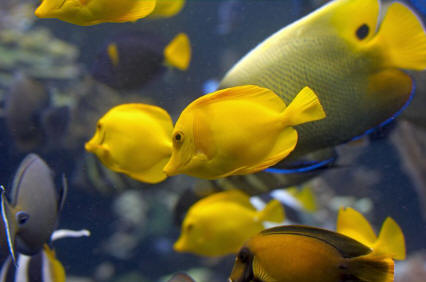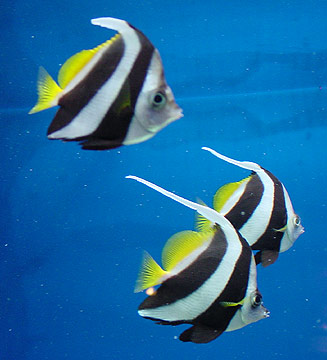Oranda, Giant Black

|
Scientific Name: Carassius auratus Price: Upon Request Origin: South Asia Family: Cyprinidae NOT AVAILABLE NOW |
|
Other Names: Carassius auratus auratus, Goldfish |
|
Technical Info
Temperature: 16 - 22 ℃
pH: 7.4 - 7.8
GH: 10 - 14
Max size: 55 cm
Min Tank size: 75 Ltr
Position in Aqua: No special swimming level
Description
There are many variations to this fish and it has a reputation of being easy to keep. Unfortunately this has often led to its demise as they are sometimes kept in unsuitable tanks. As with any fish, they require optimum water conditions. An oranda is a fancy goldfish characterized by a prominent raspberry-like hood encasing its head. The hood or headgrowth (also known as wen) encases the whole head except for the eyes and mouth.
Food
The food for this fish needs to be low in protein but high in carbo-hydrates, this is why it is often best to use specialist goldfish flakes or pellets to feed this fish. It is a voracious eater so the feeds should be kept down to what the fish can eat in two minutes. This should be done twice daily. Shelled peas, some blanched leaf vegetables and bloodworms should also be included in the diet.
Breeding
During the spawning season the male will have tubercles on their head, pectoral fins and gill covers. About 1000-2000 eggs are produced by the female. The female will scatter her eggs on the plants, rocks or the substrate; afterwards the male will fertilize these eggs. The fry hatch after 3-5 days and need to be feed with small foods such as cyclops or fry foods. It is highly recommended to remove the parents from the breeding tank or else they will eat their own eggs.
Compatible with
Goldfish are peaceful fish. Goldfishs should not be combined with fancy goldfish, as the fancy goldfish will have trouble competing for food. If goldfish are combined with other freshwater tropical fish, it is best to limit this to catfish. Fancy Goldfish can also be combined with danios, ottos, white clouds, barbs, kuhli loaches and weather loaches.
Note
Goldfish can be long-lived in captivity, with 10 to 25 years not uncommon; there is one report of a fish living to the age of 43.

